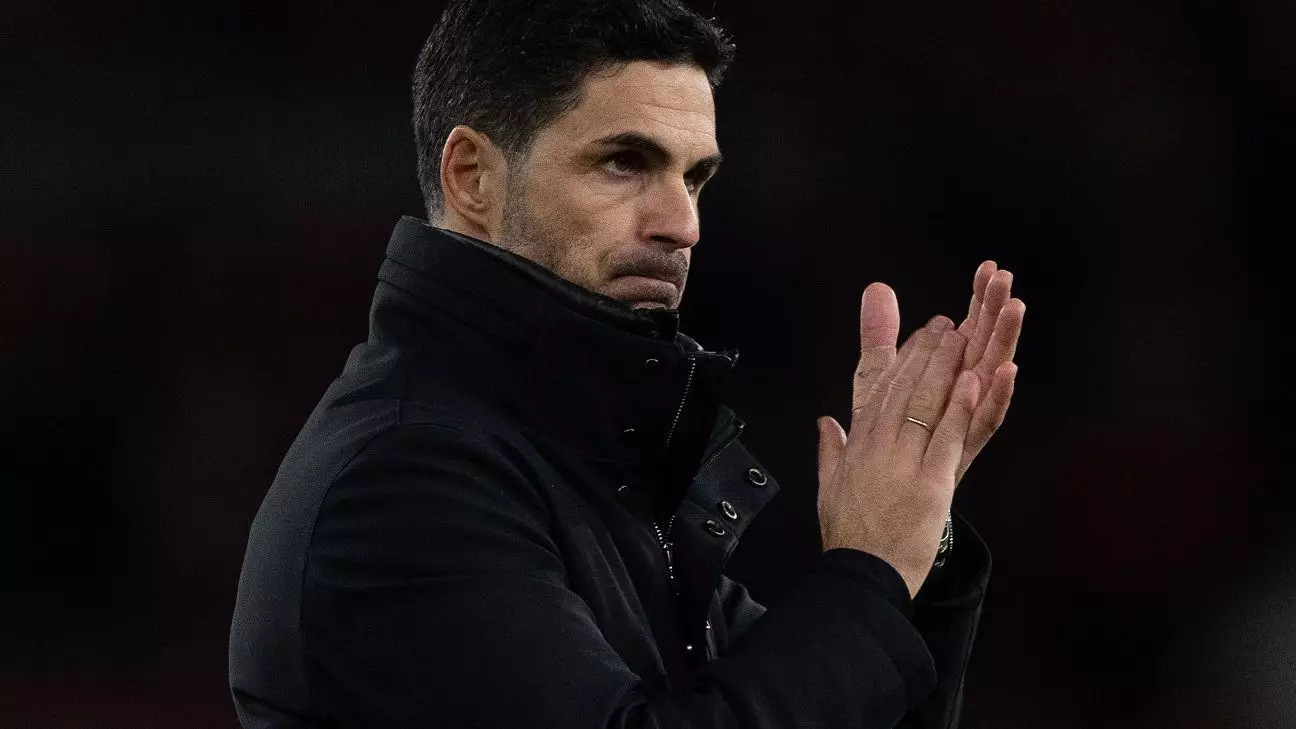Arsenal Football Club has emerged as a significant player in the Premier League over the past seasons, driven by its ambitious manager Mikel Arteta. However, the recent January transfer window exposed the delicate balance the club must navigate between immediate needs and long-term strategy. Despite making attempts to bolster their attacking lineup, especially in the wake of injuries to key players like Bukayo Saka and Gabriel Jesus, Arsenal walked away empty-handed, raising questions about the club’s transfer approach and strategic planning.
Arteta’s admission regarding his disappointment over the failure to recruit a striker demonstrates a clear acknowledgment of the pressing needs within the squad. A bid of approximately £40 million for Ollie Watkins was rejected, illustrating not only the challenges Arsenal faced in acquiring quality players but also the fighting spirit of Aston Villa, who valued their star striker significantly. This situation highlights the broader issue of how top clubs often find it difficult to negotiate effectively during the mid-season market, especially when competing with clubs that are unwilling to part with their most valuable assets.
Despite articulating the need for attacking reinforcements following key injuries, Arsenal’s inability to sign a striker could have ramifications as the season progresses. A lack of squad depth could leave Arteta vulnerable, especially in critical matches where the Gunners need to capitalize on goal-scoring opportunities. The question arises: How many more chances will the team have to capitalize on transfer opportunities before they affect their league standing?
The Importance of Strategic Discipline
One noteworthy aspect of Arteta’s post-transfer window comments was his emphasis on discipline. The notion is compelling; many clubs, in their urgency to strengthen a squad, often make hasty decisions that can lead to detrimental long-term effects. Arteta stressed the importance of “staying in the lane,” which implies a commitment to not deviate from the club’s core strategy, even when faced with immediate pressures. This discipline encompasses not only player profiles but also financial considerations and the long-term vision for player development.
By focusing on recruiting players who fit the club’s philosophy, rather than making impulsive acquisitions, Arsenal is proud to maintain an ethos that can yield sustainable success. However, failing to address immediate squad deficiencies in attacking options may serve to pile more pressure on the current players—a precarious position indeed as the club aims for success in multiple fronts, including the Carabao Cup and league challenges.
Arteta’s comments also allude to future plans concerning potential targets in the summer transfer window. Names like Benjamin Sesko and Alexander Isak have emerged as long-term targets, but as Arteta rightfully points out, all potential signings must align with the club’s ideal profile of player attributes. Arsenal needs to tread carefully, ensuring that they do not rush into deals that could financially hinder their progress.
Standard practices suggest that teams ought to build typically strong academies to support first-team squads. Arteta indicated a focus on integrating younger talents from the academy into his squad, which could gradually alleviate some of the load on the senior players. This strategy requires patience and vision, two qualities that if harnessed correctly, could see Arsenal harbored in a position of strength for years to come.
Looking Ahead: Resilience and Readiness
As the Gunners prepare for their upcoming fixtures, including a crucial Carabao Cup semifinal against Newcastle, the pressure mounts. The team’s capability to not just play but to perform against higher-caliber teams will be closely scrutinized, especially in light of their recent transfer setbacks. The resilience of the squad will be tested as they work harder to compensate for any gaps in personnel.
Ultimately, while Mikel Arteta’s disappointment over the January window is valid, it must also serve as a catalyst for innovation and resilience. The path forward may not be easy. Yet, with a blend of discipline, strategic signings, and a strong academy, there is potential for Arsenal to create a formidable squad capable of challenging for silverware in the near future. Time will tell if these choices will yield the fruitful results that Arteta and the fans so dearly hope for. The stakes are high, but the vision remains clear: evolve, adapt, and succeed.

